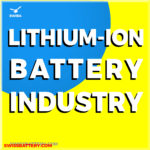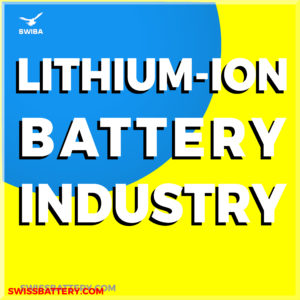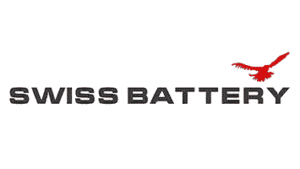Batteries & EES for many Industries
Batteries & EES for many Industries

Industries, Utilities, and Applications
We have a vast portfolio of products, services, and solutions for customers and clients in many industries. Each Industry is visualized by the pictures below representing each branch.










Warning: Undefined array key "hotspot_offset_x" in /home/clients/0333caade0cdab216b36532b49cab257/sites/swissbattery.com/wp-content/plugins/elementor-pro/modules/hotspot/widgets/hotspot.php on line 1060
Warning: Trying to access array offset on value of type null in /home/clients/0333caade0cdab216b36532b49cab257/sites/swissbattery.com/wp-content/plugins/elementor-pro/modules/hotspot/widgets/hotspot.php on line 1060
Warning: Undefined array key "hotspot_offset_y" in /home/clients/0333caade0cdab216b36532b49cab257/sites/swissbattery.com/wp-content/plugins/elementor-pro/modules/hotspot/widgets/hotspot.php on line 1061
Warning: Trying to access array offset on value of type null in /home/clients/0333caade0cdab216b36532b49cab257/sites/swissbattery.com/wp-content/plugins/elementor-pro/modules/hotspot/widgets/hotspot.php on line 1061
Batteries for the Solar Industry from Swiss Battery
Warning: Undefined array key "hotspot_offset_x" in /home/clients/0333caade0cdab216b36532b49cab257/sites/swissbattery.com/wp-content/plugins/elementor-pro/modules/hotspot/widgets/hotspot.php on line 1060
Warning: Trying to access array offset on value of type null in /home/clients/0333caade0cdab216b36532b49cab257/sites/swissbattery.com/wp-content/plugins/elementor-pro/modules/hotspot/widgets/hotspot.php on line 1060
Warning: Undefined array key "hotspot_offset_y" in /home/clients/0333caade0cdab216b36532b49cab257/sites/swissbattery.com/wp-content/plugins/elementor-pro/modules/hotspot/widgets/hotspot.php on line 1061
Warning: Trying to access array offset on value of type null in /home/clients/0333caade0cdab216b36532b49cab257/sites/swissbattery.com/wp-content/plugins/elementor-pro/modules/hotspot/widgets/hotspot.php on line 1061
Batteries for the Utility Industry from Swiss Battery

Warning: Undefined array key "hotspot_offset_x" in /home/clients/0333caade0cdab216b36532b49cab257/sites/swissbattery.com/wp-content/plugins/elementor-pro/modules/hotspot/widgets/hotspot.php on line 1060
Warning: Trying to access array offset on value of type null in /home/clients/0333caade0cdab216b36532b49cab257/sites/swissbattery.com/wp-content/plugins/elementor-pro/modules/hotspot/widgets/hotspot.php on line 1060
Warning: Undefined array key "hotspot_offset_y" in /home/clients/0333caade0cdab216b36532b49cab257/sites/swissbattery.com/wp-content/plugins/elementor-pro/modules/hotspot/widgets/hotspot.php on line 1061
Warning: Trying to access array offset on value of type null in /home/clients/0333caade0cdab216b36532b49cab257/sites/swissbattery.com/wp-content/plugins/elementor-pro/modules/hotspot/widgets/hotspot.php on line 1061
Batteries for the Aviation and Flight Industry from Swiss Battery

Warning: Undefined array key "hotspot_offset_x" in /home/clients/0333caade0cdab216b36532b49cab257/sites/swissbattery.com/wp-content/plugins/elementor-pro/modules/hotspot/widgets/hotspot.php on line 1060
Warning: Trying to access array offset on value of type null in /home/clients/0333caade0cdab216b36532b49cab257/sites/swissbattery.com/wp-content/plugins/elementor-pro/modules/hotspot/widgets/hotspot.php on line 1060
Warning: Undefined array key "hotspot_offset_y" in /home/clients/0333caade0cdab216b36532b49cab257/sites/swissbattery.com/wp-content/plugins/elementor-pro/modules/hotspot/widgets/hotspot.php on line 1061
Warning: Trying to access array offset on value of type null in /home/clients/0333caade0cdab216b36532b49cab257/sites/swissbattery.com/wp-content/plugins/elementor-pro/modules/hotspot/widgets/hotspot.php on line 1061
Batteries for the Lithium-Ion Industry from Swiss Battery

Automotive Industry
Imagine you’re home on a rainy night, watching movies with the laundry machine runni
Warning: Undefined array key "hotspot_offset_x" in /home/clients/0333caade0cdab216b36532b49cab257/sites/swissbattery.com/wp-content/plugins/elementor-pro/modules/hotspot/widgets/hotspot.php on line 1060
Warning: Trying to access array offset on value of type null in /home/clients/0333caade0cdab216b36532b49cab257/sites/swissbattery.com/wp-content/plugins/elementor-pro/modules/hotspot/widgets/hotspot.php on line 1060
Warning: Undefined array key "hotspot_offset_y" in /home/clients/0333caade0cdab216b36532b49cab257/sites/swissbattery.com/wp-content/plugins/elementor-pro/modules/hotspot/widgets/hotspot.php on line 1061
Warning: Trying to access array offset on value of type null in /home/clients/0333caade0cdab216b36532b49cab257/sites/swissbattery.com/wp-content/plugins/elementor-pro/modules/hotspot/widgets/hotspot.php on line 1061
Batteries for the Automotive and car Industry from Swiss Battery

Solar Industry
Warning: Undefined array key "hotspot_offset_x" in /home/clients/0333caade0cdab216b36532b49cab257/sites/swissbattery.com/wp-content/plugins/elementor-pro/modules/hotspot/widgets/hotspot.php on line 1060
Warning: Trying to access array offset on value of type null in /home/clients/0333caade0cdab216b36532b49cab257/sites/swissbattery.com/wp-content/plugins/elementor-pro/modules/hotspot/widgets/hotspot.php on line 1060
Warning: Undefined array key "hotspot_offset_y" in /home/clients/0333caade0cdab216b36532b49cab257/sites/swissbattery.com/wp-content/plugins/elementor-pro/modules/hotspot/widgets/hotspot.php on line 1061
Warning: Trying to access array offset on value of type null in /home/clients/0333caade0cdab216b36532b49cab257/sites/swissbattery.com/wp-content/plugins/elementor-pro/modules/hotspot/widgets/hotspot.php on line 1061
Batteries for the Solar Industry from Swiss Battery
Advantages of combining Battery Storage and Solar
Some advantages of combining Battery Storage and Solar:
- Balancing electricity loads
- “Fastening” solar/PV generation,
- Providing resilience.
Battery and energy storage systems can smooth electricity prices by arbitrage, manage evening energy ramps, reduce shortness risk, provide black-start ability, provide back-up power and many more.
Without a place to send the energy produced by solar panels, solar power would be inefficient – your power – consuming appliances would only work when the sun is shining and your photovoltaic panels are working.
If you don’t use the energy, it goes to waste – and you can’t use it at night. Using batteries, which store the energy generated by your solar panels and use it only when you need it. Batteries are an alternative (or addition) to feeding energy back into the power grid, and can help you make private homes and businesses somewhat immune to power outages, or even take it off the grid completely!
Battery Technologies for the Solar Industry
Lithium-Ion Batteries
The technology behind the lithium-ion battery is much more recent and flexible than that of any other type of battery. Offering a smaller, lighter and more efficient option, lithium-ion batteries have a high-energy density. They allow the user to access more of the energy stored in the battery before it needs to be recharged. This makes them ideal for use in notebooks and iphones and android phones – and in the private home.
Lithium Metal Batteries
Lithium-based batteries using Li- metal anodes and are one candidate for next generation, high-energy density rechargeable batteries. Solid-sate Batteries are often using pure lithium-metal.
Redox-Flow Batteries Batteries
The most common chemistry for battery cells is lithium-ion, but other common options include Redox-Flow Batteries, lead-acid, sodium, and nickel-based batteries.
Utility Industry
Utility Battery Storage
Market applications for Utility battery storage in the utility industry are usually divided in “in-front of the meter” and “behind-the-meter”.
“In-front of the meter” batteries
“In-front of the meter” batteries are connected to distribution or transmission networks or in connection with a generation asset. They provide applications required by system operators, such as ancillary services or network load relief.
“Behind-the-meter” batteries
“Behind-the-meter” batteries are interconnected behind the utility meter of commercial, industrial or residential customers, primarily aiming at electricity bill savings through demand-side management
This brief focuses on how utility-scale stationary battery storage systems – also referred to as front-of-the meter, large-scale or grid-scale battery storage. This can help effectively integrate Variable Renewable Energy sources into the power system and increase the share in the local energy mix.
Unlike conventional storage systems, such as pumped hydro storage, batteries have the advantage of geographical and sizing flexibility and can therefore be deployed closer to the location where the additional flexibility is needed and can be easily scaled.
Warning: Undefined array key "hotspot_offset_x" in /home/clients/0333caade0cdab216b36532b49cab257/sites/swissbattery.com/wp-content/plugins/elementor-pro/modules/hotspot/widgets/hotspot.php on line 1060
Warning: Trying to access array offset on value of type null in /home/clients/0333caade0cdab216b36532b49cab257/sites/swissbattery.com/wp-content/plugins/elementor-pro/modules/hotspot/widgets/hotspot.php on line 1060
Warning: Undefined array key "hotspot_offset_y" in /home/clients/0333caade0cdab216b36532b49cab257/sites/swissbattery.com/wp-content/plugins/elementor-pro/modules/hotspot/widgets/hotspot.php on line 1061
Warning: Trying to access array offset on value of type null in /home/clients/0333caade0cdab216b36532b49cab257/sites/swissbattery.com/wp-content/plugins/elementor-pro/modules/hotspot/widgets/hotspot.php on line 1061
Batteries for the Solar Industry from Swiss Battery

Deployment of pumped hydro storage, requires specific geological conditions (i.e. mountains).
Size of Utility Storage Batteries
Utility-scale battery storage systems have a typical storage capacity ranging from around a few megawatt-hours (MWh) to hundreds of MWh.
Battery Technologies for Utility Storage
Different battery storage technologies, such as lithium-ion (LIB), sodium-sulfur and lead- acid batteries, can be used for grid applications
Currently, Lithium-ion accounts for most of the large-scale battery storage that is installed every day.
Do not hesitate to contact us at Swiss Battery to arrange a meeting.



